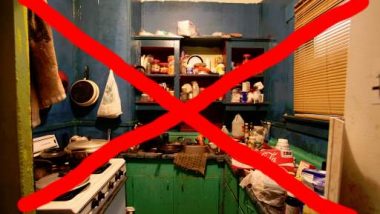Boiler vs Heat Pump – A Comparison of Home Heating with a Combi Condensing Boiler Versus a Heat Pump
In this article we compare a typical modern boiler installed home central heating system with a conversion of the property’s heating system to ground source and air-source, heat pump systems.
The choice of the type of boiler which we will base this comparison is a typical home central heating natural gas powered combi boiler which is provided with a condenser in accordance with the current UK regulations.
The main issues considered are:
a) Initial installation costs
b) Running costs
c) Environmental sustainability
a) Initial Installation Costs
Gas Boiler
According to “theHeatinghub” the cost of a new boiler fitted in an existing central heating system in a average 3-bedroom house is between £1,500 and £2,000. The home owner will continue to use the existing radiators. It’s an easy choice to go for because there are plenty of plumbers who will do these installations, and the marketplace is competitive which continues to keep installation costs down.
Heat Pump
According to the YouGen blog, the cost of installation depends on any number of factors – size of property, type of installation, make and model etc… Air source heat pumps can be much less [expensive than ground source heat pumps] – from around £4,000 (ground source heat pumps are much higher because of the heat exchanger must be buried underground). However, because heat pumps are most efficient when used with underfloor heating this can bump the cost up dramatically, particularly in a retrofit, bringing it on a par with biomass. via
http://www.yougen.co.uk/blog-entry/2541/Biomass%2Bboiler%2Bvs%2Bheat%2Bpump%2B’3A%2BThe%2Bfight%2Bis%2Bon’21/
Heat pumps run at a cooler hot water temperature than gas boilers. The hot water they produce is perfectly adequate for showering, but for those people that like to have piping hot water, even hot enough to easily scald themselves, they should think carefully about the cooler “hot” water they will get from any heat pump, system.
While heat pumps supply water hot enough for general home use, it is not as hot as the average radiator on a cold day. The existing radiators wil need additional ones added. The only solution is to provide more, or larger, radiators than originally fitted to modern homes. This is an additional cost for retrofitting heat pumps, which can raise the cost of a heat pump installation by a quarter to an additional half, of buying and fitting a new boiler . For new-builds this isn’t so much of a problem as most builders will fit underfloor heating for use with heat pumps, in preference to radiators, and underfloor heating works well on lower the hot water temperatures that heat pumps work on.
b) Running Costs
According to Confusedaboutenergy.co.uk the average cost of running a modern energy efficient combi boiler per annum is about £1,100. That’s simple but the costs are much more difficult than this to calculate running cost for the many people who live the same lives.
According to Greenmatch.co.uk, heat pumps are versatile and green technologies, and enjoy great popularity among customers seeking heating and cooling devices. Heat pumps can provide significant savings over traditional heating systems, due to their low running costs. For example, a ground source heat pump can reduce energy bills by at least 26% over a new gas boiler.
Some of the main factors affecting the running cost of heat pumps are:
Coefficient of Performance (COP) – with typical values of 3 to 4.3, it can save up to 52% if used only for space heating instead of a gas boiler.
Renewable Heat Incentive (RHI) – a grant offered by the Government that, for a 2 bedroom semi-detached house, would produce an annual income of £ 2.538.
Insulation – necessary to be able to cut energy bills by the values stated above.
The price for installing a heat pump lies (according to Greenmatch.co.uk) usually around £ 8,000 for air source heat pumps and around £13,000 for ground source heat pumps.
But thanks to the savings and grants, homeowners start to earn money after few years. Via
http://www.greenmatch.co.uk/blog/2014/08/the-running-costs-of-heat-pumps
Greenmatch.co.uk goes on to explain the following:
A reliable ground-source heat pump only distributing space heating will run at a COP of 4.3, which means that in order to produce 11,000kWh of heat it will need 2,558kWh of electricity at a cost of £349. But we must take into account that we still need DHW. If the heat pump is installed properly, it will raise water temperature to 40 degrees and the on-board electric heaters will boost it to the required storage temperature. This way we maintain the COP at 4.3 for the heating cycle and diminish the work rate of the electric heaters (at an effective COP of 1.0). The cost of DHW will be about £395, reaching a total running cost of £744 per year – meaning a 26% reduction in annual running cost.
The financial assessment in any comparison between home heating with a combi condensing boiler versus a heat pump, must also take into account a government subsidy known as the Renewable Heat Incentive (RHI). This is the government payment which, although it will be revised for new installations in April 2017, is explained again by Greenmatch.co.uk, as follows:
What Is The Renewable Heat Incentive (RHI)?
The details of this scheme were made public by the UK government in April 2014 for England, Scotland and Wales. The Renewable Heat Incentive has two schemes:
1. Domestic RHI – is tax free. It consists of subsidy payable every quarter for 7 years.
2. Non-Domestic RHI – It is a subsidy payable in 20 years.
These plans have separate tariffs, different joining conditions, rules and application processes. Every year on the 1st of April the tariff rate changes to adjust to the Retail Price Index. Ofgem is responsible for administering both programmes. In order to join the RHI scheme, a domestic Energy Performance Certificate (EPC) is required. An EPC offers information regarding a household’s energy use and also hands out recommendations on how to reduce energy waste and save money! via
http://www.greenmatch.co.uk/blog/2014/08/the-running-costs-of-heat-pumps
In addition to the RHI subsidy, there is another benefit to using heat pumps, and that is for cooling your house in summer. Heat pumps simply move the heat in the reverse direction, and can act as air-conditioning type units, during hot-weather.
On the negative side when you consider the comparison between home heating with a combi condensing boiler versus a heat pump, there are a lot more design aspects which can go wrong for heat pump systems. Each heat pump system must be carefully sized, for it to work as intended without breakdowns.
For their theoretical economic value/sustainability to become a reality, they must be tailored in detail with great care to match the site features, for which the AD plant has been intended.
c) Environmental Sustainability
The UK government clearly must believe that heat pump systems are more environmentally sustainable than the use of natural gas in boilers, otherwise it would not be continuing to provide the RHI subsidy.
UK Government studies have shown that heat pump systems do emit lower damaging carbon dioxide emisions.




Hi! I was interested to read your comparison of heat pumps versus a boiler for home use.
They can be fitted by experts in Shropshire, and come well-recommended. Good luck.
Thanks for the marvellous posting! I seriously enjoyed reading it, you will be a great author. I will be sure to bookmark your blog and will eventually come back later on. I want to encourage you to continue your great posts, have a nice afternoon!
Thank you for another wonderful article. Where else could anyone get info on gas boilers versus heat pumps? And, you have such a perfect approach of writing. I have a presentation to make in the next week, and I was on the search for such info. Had to say thanks for this. Look at my site at http://educationclue.eu
Let me begin by saying nice post. I found it slow to load but was worth waiting for. I’m not sure if it has been talked concerning, the high price of heat pumps. I have quote but cannot afford to have it. Thanks.
Great article, but this topic has already been written about so I am not sure how useful it is. Which have done a write up on heat pump systems and whether they are suitable and you can see it if you click on my name above. It’s a link.
If you want to know how it is with ground heat pumps. Make sure they tell you that to drill a heat sink well they will likely make a mess of your garden.
How long would you say it takes to remove and replace a heat pump itself?
2019 New Boiler Set up Costs
A gas-fired condensing boiler is without doubt one of the most economical and clean ways to warmth your
home, scale back your month-to-month heating
payments and lessen environmental impact. Nonetheless, the general energy
efficiency of the steam plant (the mixture of boiler, superheater, piping
and machinery) generally will be improved enough to more than offset
the increased fuel consumption. The brittleness of cast iron makes it impractical for high-pressure steam boilers.
A flash boiler differs from the type of mono-tube steam generator wherein the tube is permanently filled with water.